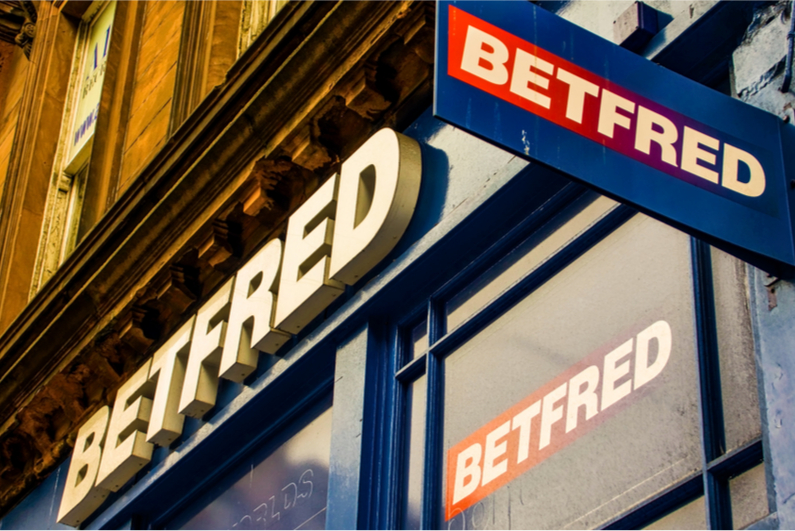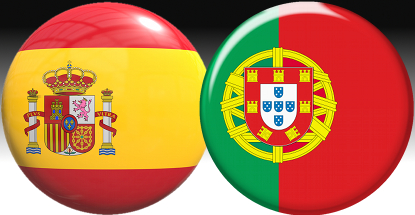The Spanish Ministry of Consumer Affairs initiated the changes to the recent Royal Decree that regulates the country's gambling industry. Login Casino keeps an eye on the latest legislation news in gambling and explains in more detail what is going to change in Spain.
- Spain Online Gambling Tax Advice
- Spain Online Gambling Tax Forms
- Spain Online Gambling Tax Calculator
- Spain Online Gambling Tax Filing
The tax cut is designed to encourage more gaming operators to enter the regulated Spanish market and discourage illegal gambling activity. A five per cent reduction in online gambling tax for licensed operators has come into force in the country on July 1st.

Online gambling at a regional level is restricted (for example, only tax residents of the Madrid region are allowed to play there). In theory, a tax resident of Madrid is entitled to play on the website of a Madrid operator from any other location within Spain, only by virtue of their tax residency. Here we look at the Spanish tax residence rules and how savings, capital gains, employment, rental and pension income are taxed in Spain. It is important to review your tax planning from time to time, to confirm it is up to date and that you are taking advantage of the opportunities available in Spain to reduce tax liabilities for yourself and your heirs.
The following year can bring changes to the Spanish gambling legislation, which is now operating under the Royal Decree. It was announced by the head of the Ministry of Consumer Affairs, Alberto Garzon.
According to the Minister, the primary emphasis will be on improving the laws' customer side. Thus, the governor hopes to increase the standards in multiple directions, including awareness, prevention, control, intervention, and treatment.
Among the upcoming practical changes will be the adjustment of gambling advertising via the mass media. Spain has already banned betting sponsorship on the jerseys of sports clubs. However, the renewed law will regulate the partnership between the sides in a more transparent manner.
Another aim is the activation of the generally accepted self-exclusion scheme. It means the coordination between the gambling spheres and sharing the needed information to prevent addictive behavior among the population, especially the younger ones.
Alberto Garzon explained that the draft of the new legislation will be presented in 2021. It means that the list of the involved persons will be massive during this drafting stage. Thus, the Minister hopes to include into the workgroup all the parties: shareholders, scientists, lawmakers, and so on.
One of the major roles will be played by the Responsible Gambling Advisory Council, which consists of experts from different spheres. However, this squad will be expanded with the representatives of popular lotteries, ONCE and SELAE.
Read more: The gambling license variety across European countries: a simple guide
Read more: What are the real roots of gambling addiction?
No comments
If you’ve ever won a jackpot through bingo, slots or the lottery, you might have wondered if your winnings are taxable...
If you find yourself lucky enough to win big, do you have to declare it and pay taxes? If that thought has ever crossed your mind, you’re in luck because BingoPort has you covered. We’ve put together a guide that will answer whether your winnings really are taxable, a brief history of gambling laws and a look at how this might impact you.
So, if you’ve bagged yourself a big jackpot, congratulations! If you’re just here for the information, don’t worry—we’re sure your time will come someday.
Are Bingo Winnings Taxable?
The short answer is no—your gambling winnings aren’t taxable, at least in the UK. Here you won’t have to pay taxes on any of your winnings or stakes. It doesn’t matter if you’ve won £100 or £1 million. This applies to all types of gambling—from bingo, to slots, to lotteries, and even horse racing. So if you win big, you can rest assured knowing that you can spend your money in whatever way you’d like.

Depending on the site you’re using, your winnings will either be paid to you in one lump sum, or as a certain amount each month. If you’ve won recently, or you frequent a particular site, casino or betting brand, you should check their Terms and Conditions—this will lay out everything you need to know should your lucky day come.
If you don’t live in the UK your winnings might be subject to a tax, so it’s important that you check in advance. For example:
- France has a 2% tax on poker cash pots.
- In Spain, you need to declare winnings as income for taxation.
- The Netherlands has a 29% tax if you win more than €454 in the lottery.
If you’re a UK citizen and you find yourself gambling abroad, you generally won’t need to worry about taxes. Most countries have treaties with the UK, so you won’t be subject to their tax requirements.
Gambling wasn’t always tax-free however—check out the section below for a summary of the history of gambling and taxes in the UK.
History of Gambling Laws
Spain Online Gambling Tax Advice
Betting shows were first legalised with the 1960 Betting and Gaming Act, in which a tax was levied either on stakes or winnings in high street betting shops. This was charged at a whopping 9% for punters. It was abolished by Gordon Brown in his March budget of 2001.
This tax on gamblers themselves was replaced with a 15% tax on bookmakers and their gross profits at point of supply instead. This ‘point of supply’ basis meant that if a bookmaker wasn’t based in the UK, they weren’t liable however. This was a pressing concern for Brown, who feared that the UK was losing revenue to offshore gambling sites.
In fact, more and more bookmakers moved their online operations offshore where they would only have to pay the local tax rate on profits—this was capped at 1% in Gibraltar!

This changed with an amendment to the 2005 Gambling Act in 2014. From this point, the tax was changed to 15% on all gross profits at point of consumption—including offshore companies. This meant that gambling operators in Gibraltar and the Isle of Man for example, were now obliged to pay tax in order to obtain a gambling licence. This amendment essentially made it illegal to operate in the UK without a UK gambling licence.
This had a huge impact in making UK-based bookies and betting shops more competitive—increasing the growth and success of the gambling industry in the UK.
So, Why Aren't They Taxable?
To put it simply, it’s just easier for everyone involved to leave winnings untaxed. For example, if people are paying taxes on their winnings just like businesses do, then it would potentially be possible to claim back losses on tax returns. As you can imagine, this would be a nightmare, especially considering the fact that most people lose when it comes to gambling. After all, we all know what the 10 stages of losing at bingo are like!
Who Exactly Pays The Tax?
The casinos and bookmakers are the ones now paying the tax—this is the way they contribute to the UK’s economy. There are a variety of different taxes and gambling duties:
- General betting duty
- Bingo duty
- Machine games duty
- Lottery duty
- Gaming duty
- Remote betting duty
Before you start thinking about how tough it must be for gambling businesses, or how great it might be for you, bear in mind that they do pass these costs on to you in some way. For example, some online gambling sites have high wagering requirements or lower odds.
What If You're A Professional Gambler?
When we say ‘professional gambler’, we mean someone who essentially uses gambling as their main source of income. But even if this is the case and you are a professional gambler, the answer is still no—your winnings are not taxable.
This is backed up by the HMRC’s Business Income Manual at BIM22015. Their position is that betting and gambling don’t constitute trading:
“The fact that a taxpayer has a system by which they place their bets, or that they are sufficiently successful to earn a living by gambling does not make their activities a trade”.
Spain Online Gambling Tax Forms
Gambling winnings, therefore, remain tax-free, regardless of whether it’s your main source of income or a simple hobby. An example of this goes back as far as 1925, in which a man named Alexander Graham was taxed by Inland Revenue. Graham made a living out of betting on horses, so Inland Revenue claimed £300 from him under the 1918 Income Tax Act. This case went to court, where Graham’s lawyers argued that betting on horses couldn’t be considered a trade. The judge eventually ruled that you can’t tax “habit”.
That’s not to say that professional gamblers can’t ever be subject to tax. It can get a little bit complicated. For example, if a professional gambler is being paid an appearance fee for playing at a particular tournament, then this would be a type of income that would be liable for tax.
So, I Don't Have To Worry At All Then?
While your winnings aren’t taxable by any gambling laws, that doesn’t mean you don’t have to worry. After all, other taxes may still be applicable.
A problem that many lottery winners have is extra tax—particularly on the ‘bigger’ wins. Any income that you generate from your winnings could be subject to income tax—for example, income earned through investments would be subject to a capital gains tax at 18%! And that’s not all—your winnings might even be liable to an inheritance tax when you die.
An inheritance tax is levied on property or cash acquired by a gift or inheritance. The threshold for this tax is £325,000, so if your ‘estate’ is worth more than that, you’re looking at a 40% tax. While you can give your money away to people or charities, it’s still liable should you die within 7 years of the gift.
You can give away £3,000 each year tax-free to any one person, or £250 as a gift to someone as long as they’re not gifted any further. If you give more than this away and you die, it will be liable to this tax. If you live longer than the allotted 7 years, it will be exempt from the inheritance tax.
If you do end up winning big—whether it’s through bingo, the lottery or a casino—you should definitely look to a financial advisor for help on how to invest your money and how to protect it.
Before going out to buy your lottery tickets for the week, find out if the lottery is worth playing.
Conclusion
Spain Online Gambling Tax Calculator
Well, there you have it. If you live in the UK, our tax laws mean that you can gamble tax-free, without a single worry. Generally speaking, it isn’t very likely that this will ever change—taxing gambling winnings will never be viable for the UK. After all, if you tax the income or profit made from an activity, you have to make allowances for any losses made from the same activity.
Now you know that, you can keep playing bingo without a care in the world!
Spain Online Gambling Tax Filing
Feeling lucky?Why not try one of BingoPort’s recommended bingo sites like Gala Bingo?